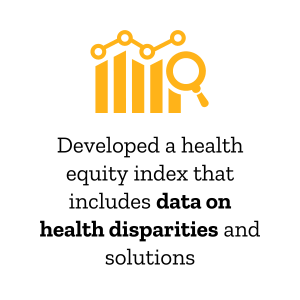
Our Mission
To eradicate health disparities for African Americans by influencing health policy and practice through community engagement, advocacy, research, and education.
Our Vision
To ensure that all West Michigan residents have optimal health care and benefit from health systems without race being an impediment.
Our History
The Grand Rapids African American Health Institute was established in 2002 in response to a growing body of evidence suggesting vast differences in health and healthcare outcomes for African Americans.

Current Initiatives
GRAAHI
In Action
Rhythm Run & Fair
Share your voice! Take our advocacy survey. Help GRAAHI represent your needs to leaders. Your insights will shape a healthier, equitable community
Blood Drive
Become a Hero for Life when you Donate Blood. Every day, blood donors help patients of all ages. Save up to three lives and get a $50 gift card for your service.
GRIEF SUPPORt
Led by the experienced and caring Enid Gaddis and Syretta Nelson, our grief support group will meet on Mondays from 10:30 AM to 12:00 PM throughout June.
FIT JAM
This high-energy experience blends dance, movement, and more with the power of music and creative expression to create a fun, inclusive space for your entire family.
Our Impact
Since our founding in 2002, GRAAHI has made a significant impact on the health of African Americans in Grand Rapids.






Health Equity Matters
Help support our foundation of CARE and make a difference in our community.



